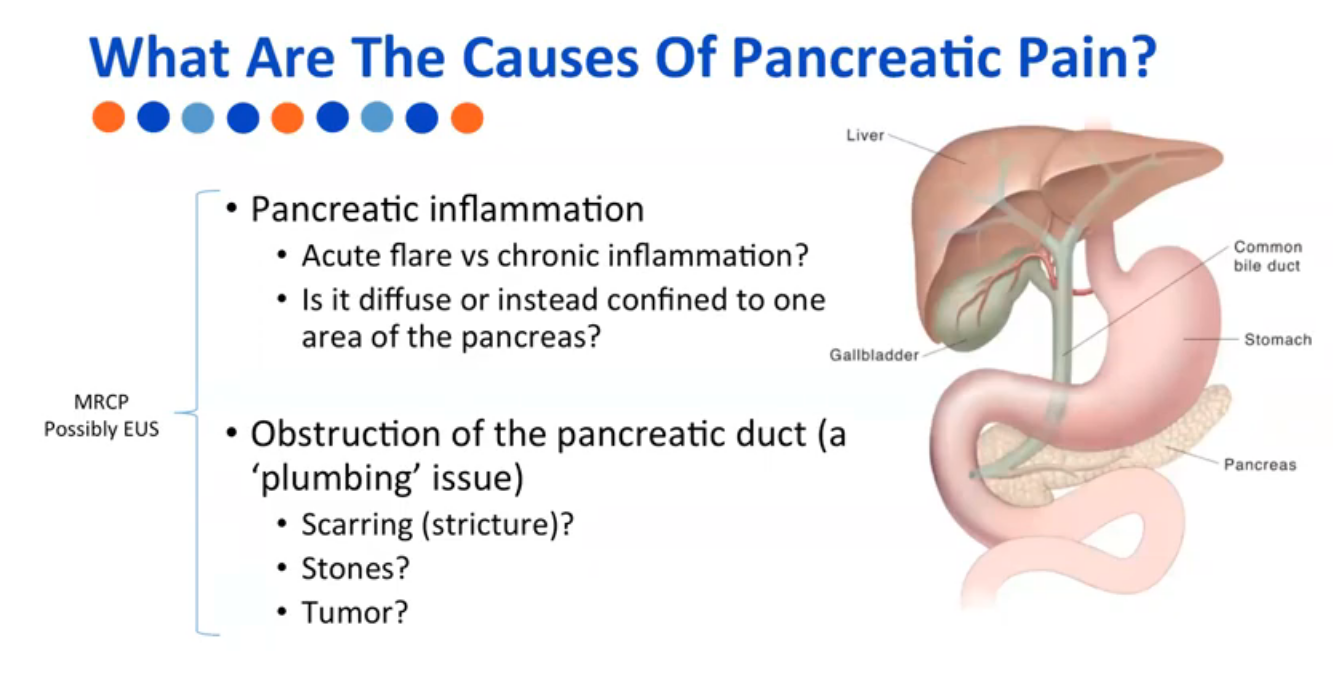Pancreatitis Pain: A Medical Approach with a Patient Focus
If you or a loved one suffer from chronic pain from pancreatitis, you won’t want to miss the second in Mission: Cure’s series on managing chronic pancreatitis pain. The first webinar in this series discussed a psychological approach called pain self-management. In this webinar, Dr. Steven Freedman discussed a range of medications and medical procedures that have been successful in reducing or managing pain, including:
· Analgesics
· Medical Marijuana
· Uncoated pancreatic enzymes
· Neuropathic pain treatments
· Hormones for women
· Trans-cranial Magnetic Stimulation
Dr. Freedman shared his patient-centered, problem-solving approach to finding solutions that work best for each patient.

Dr. Steven D. Freedman
Leading international expert and
Director of the Pancreas Center at Beth Israel Deaconess Medical Center, Chief of the Division of Translational Research, and
Professor of Medicine at Harvard Medical School
Dr. Freedman received his Ph.D. from Yale University School of Medicine followed by the M.D. degree at the University of Connecticut. Dr. Freedman’s expertise is in exocrine pancreatic disease with a particular focus on pancreatitis and cystic fibrosis. He is an internationally recognized leader in these areas with an extensive research program that encompasses both basic science discovery and clinical trials. He has also been a leader in identifying the site in the brain where pancreatic visceral pain is represented, has developed molecular signatures of pain using MR Spectroscopy, and has successfully developed pain therapies using Transcranial Magnetic Stimulation.
Dr. Freedman also presented Mission: Cure’s webinar on pancreatic enzyme replacement therapy that was very well attended and highly rated.
Doctors now have a new tool: international consensus guidelines on treating chronic pancreatitis pain. You can learn more about the international guidelines here.